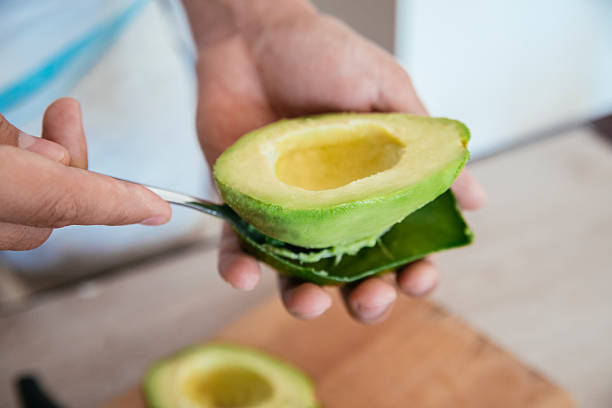Health Benefits of Avocados
Avocados health benefits are packed with nutrients that support the health of the heart, eyes, gut and more. They are rich in monounsaturated fats, a good source of fibre and contain vitamins and minerals such as vitamin C, potassium, folate and vitamin E.
They also provide 25 milligrams of natural plant sterols per serving, which may help maintain healthy cholesterol levels. Additionally, they contain lutein and zeaxanthin, which are found in eye tissue and may protect against damage from UV light.
Heart Health
Avocados provide a good source of potassium, which is important for normal blood pressure and heart health. They also have plenty of fiber, which helps you feel full and satisfied after meals and prevents overeating.
One avocado has about 14 grams of dietary fiber, half of your daily needs. Unlike most fruits and vegetables, most of the fat in avocados is monounsaturated, which can help lower cholesterol levels and reduce your risk of heart disease.
A 2022 study of nearly 100,000 men and women found that people who ate two servings of avocado per week had a 16% lower risk of heart disease than those who avoided them. Avocados contain phytosterols, which may help reduce cholesterol, triglycerides and blood sugar and a soluble fiber that can lower LDL (“bad”) cholesterol. They also have carotenoids like lutein and zeaxanthin, which protect against eye disease. The antioxidants in avocados can also help with heart disease and other chronic diseases.
Weight Loss
Avocados are a great source of dietary fiber which helps maintain a healthy weight. The soluble fiber also helps reduce digestive problems such as constipation. Avocados are also a good source of monounsaturated fat which can help prevent heart disease by decreasing cholesterol levels.
The vitamin E in avocados can protect against inflammation and oxidative stress that may lead to chronic diseases like diabetes. Folate is another nutrient found in avocados that can help protect against heart disease and depression. Folate is necessary for cellular functions and helps to regulate the flow of nutrients into your brain.
The folate, potassium and vitamin K in avocados can also help control high blood pressure. High-fat foods can contribute to obesity, but a diet rich in avocados can help you lose excess weight because of the unique fatty acids they contain. Research suggests that avocados can reduce hunger and calorie intake, and increase feelings of fullness by improving satiety.
Eye Health
Avocados are popular for making guacamole and adding to salads. They are a healthy addition to the diet because they provide essential nutrients, including folate, potassium and monounsaturated fats. These nutrients can improve the health of a person’s heart, blood vessels and digestion. They also help prevent certain eye diseases and promote cognitive health.
The avocado contains lutein and zeaxanthin, which are antioxidants that accumulate in the tissue of the retina and the macula. These phytochemicals minimize oxidative damage, such as from UV light.
The same study showed that people who ate one avocado per day for six months had higher levels of macular pigment density than those who didn’t eat avocados. These results indicate that a diet high in avocados can help prevent macular degeneration and improve vision. Additionally, lutein is an antioxidant that can protect against cataracts and other age-related conditions of the eye. These conditions can lead to loss of vision. The avocado contains beta-sitosterol and other plant sterols, which can maintain healthy cholesterol levels.
Digestive Health
Avocados are rich in both soluble and insoluble fiber, as well as folate, potassium, vitamin B6, and vitamin C. And they contain healthy monounsaturated fats, which help to regulate blood sugar and keep your digestive system moving.
They also provide the phytochemical avocatin B, which can inhibit tumor growth and kill cancer cells in lab tests, and beta-sitosterol, which helps reduce LDL cholesterol by blocking your body’s absorption of it. The carotenoid content of avocados (especially the orange-red ones) includes the plant pigments lycopene and lutein, which help protect your eyesight.
The natural diuretic in avocados (and the fiber they contain) can help your body get rid of excess water and can reduce bloating. Plus, a recent study found that people who added avocado to one of their daily meals had a more diverse set of gut bacteria than those who did not.



